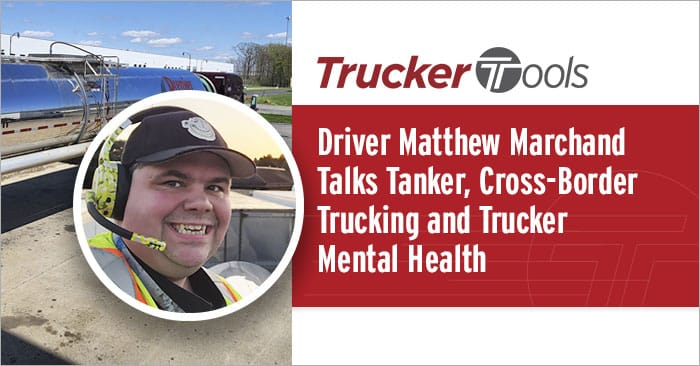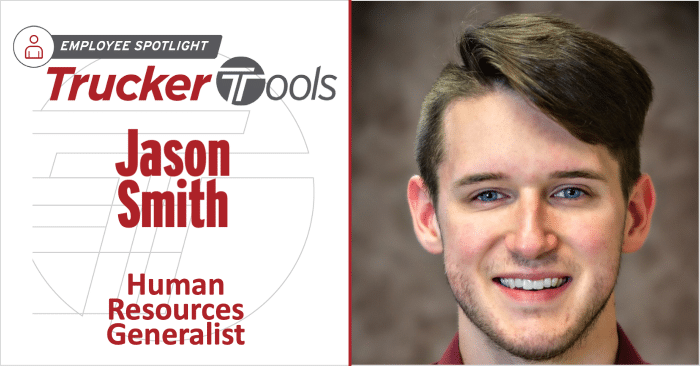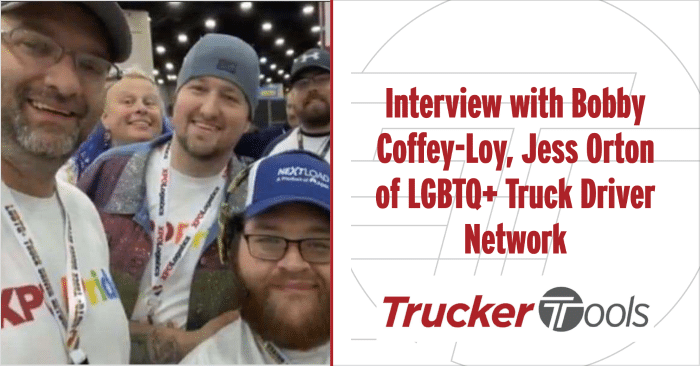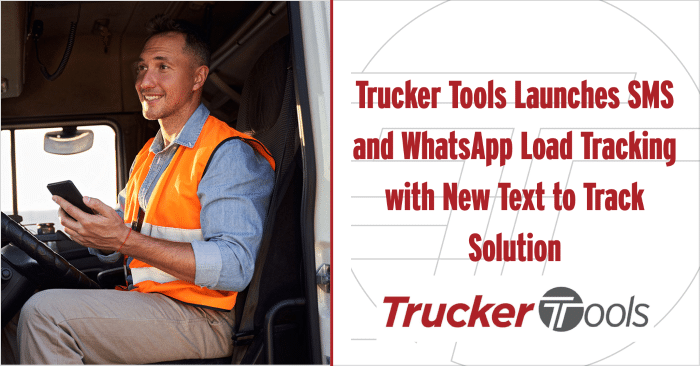May is Mental Health Awareness Month, which is an opportunity to talk about a major issue in the trucking industry: mental health. As a trucker, you often witness accidents and spend a significant amount of time away from home, family and friends. The COVID-19 precautions that many shippers and receivers have had in place since the pandemic began have made the isolation of trucking even more severe. We recently had the good fortune to speak with Matthew Marchand, an OTR company driver for Ontario-based Premier Bulk Systems about his career in trucking and how social media and photography help him deal with loneliness and isolation on the road.
Read on to learn more about Matt’s career in trucking and what he does to stay in good spirits when he’s away from home.
How Matt Got into Trucking
“Trucking is a third career for me,” said Matt, who’s been a trucker for seven years. “Trucking is hardly ever a first career, especially since most companies won’t even hire you until you’re at least 25 for insurance reasons. I went to school for hotel and restaurant management and never really used it. I ended up working in technology for about five or six years for Dell and HP doing remote support and desktop support. After that, I started running apartment buildings as a residential superintendent. I got laid off from that job in 2015 and the government paid for me to go get my CDL. At the time, I had two kids and I needed to be able to go to school very quickly and get a job. The CDL program was six weeks long. The idea was that there’s such a demand that I wouldn’t have to really worry about where I’d work.”
“Trucking is a third career for me,” said Matt, who’s been a trucker for seven years. “Trucking is hardly ever a first career, especially since most companies won’t even hire you until you’re at least 25 for insurance reasons. I went to school for hotel and restaurant management and never really used it. I ended up working in technology for about five or six years for Dell and HP doing remote support and desktop support. After that, I started running apartment buildings as a residential superintendent. I got laid off from that job in 2015 and the government paid for me to go get my CDL. At the time, I had two kids and I needed to be able to go to school very quickly and get a job. The CDL program was six weeks long. The idea was that there’s such a demand that I wouldn’t have to really worry about where I’d work.”
Matt started his career working with Schneider and then moved to Bison Transport, a Canadian carrier that he was with for three years. Matt found dry van and reefer freight boring and he wanted something more challenging that required additional skills, which is how he ended up taking a job with Premier Bulk Systems. Matt got trained on driving tanker when he was hired on to drive for Premier Bulk Systems.
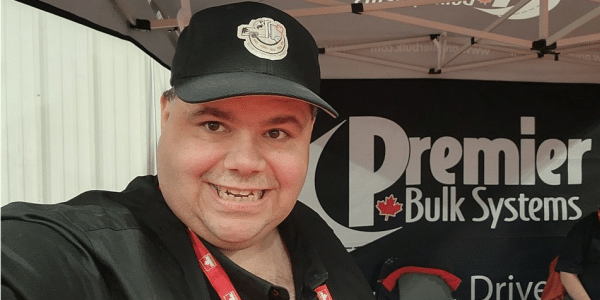
Why Matt Likes Tanker
“It took me a while in my trucking career to actually find something I like to do just because trucking is so diverse and there are so many choices with what you might do,” Matt shared. “It’s just about finding the right one. At Premier Bulk, we haul some oils like lubricants and things like that. We also do waxes and detergent. It’s a part of the supply chain that most people don’t really see at all. With tanker, we’re a lot more specialized. It’s not that it requires a ton more skills than dry van and reefer, but it does require somebody who’s able to think on their feet and problem-solve — and that’s less important in the dry and refrigerated freight world. When I get to the customer, I’m the expert on how to unload this trailer or load it and most of our customers treat us accordingly. They’re happy to see us and we don’t wait 10 hours to load or unload. Our customers will allow us to sleep on their property to make our lives a little simpler because they want it to be as convenient for us as possible.”
The Challenges of Cross-Border Hauling
“Cross-border trucking is a completely different animal,” Matt said. “The company I work for is a subsidiary company of a larger U.S. carrier and my U.S. counterparts for the most part, they don’t have any idea what’s involved because most of their drivers do not cross the border. I require different paperwork with my loads to cross the border and there are more people involved. I’ve got to deal with a customs broker to get the product cleared across the border. It’s a completely different game and of course, you’ve got to know the laws in both countries. One basic thing that most people probably take for granted is that in the United States, you guys are all working in the imperial system. We’re on the metric system in Canada, so I’ve got to be fluent in both.”
“Cross-border trucking is a completely different animal,” Matt said. “The company I work for is a subsidiary company of a larger U.S. carrier and my U.S. counterparts for the most part, they don’t have any idea what’s involved because most of their drivers do not cross the border. I require different paperwork with my loads to cross the border and there are more people involved. I’ve got to deal with a customs broker to get the product cleared across the border. It’s a completely different game and of course, you’ve got to know the laws in both countries. One basic thing that most people probably take for granted is that in the United States, you guys are all working in the imperial system. We’re on the metric system in Canada, so I’ve got to be fluent in both.”
Maintaining Good Mental Health on the Road
Matt is married with four kids and is away from home about three to four weeks at a time. He told us that the pandemic has been especially tough on truckers because of the intense isolation.
“It’s still very isolating because there are places we go to that may not even have cell service, particularly during COVID,” Matt shared. “COVID forced shippers and receivers to create processes that minimize human contact. With some customers, we check in over the phone and they tell you where the scale is. There’s a little shed with all the scale equipment inside and inside that there’s a sign-in sheet where you have to sign in. There’s a printer in the shed and your paperwork will come out in the printer. You never actually come into contact with anybody else. When you load, you’re instructed to stay in your truck. It can be very isolating at times.”
Matt started posting on social media and taking photographs of the places he travels to as a way to deal with the isolation. He said that it helps to have a support system in place, but that’s often easier said than done when you’re a trucker. Matt also does video calls on a regular basis with his wife and four daughters, who are 12, 10, four and one year(s) old. According to Matt, having an employer who is supportive of him posting on social media has been a big help, as well. Matt’s photos and writing about his travel across the United States and Canada are featured on Premier Bulk’s Twitter and Facebook accounts.
If you’d like to learn more about Matt, follow him on Twitter.
Can’t get enough of our trucker interviews? Be sure to check out “Flatbedder John DeCillo Talks Trucking as a Semi-Retirement Plan.”
